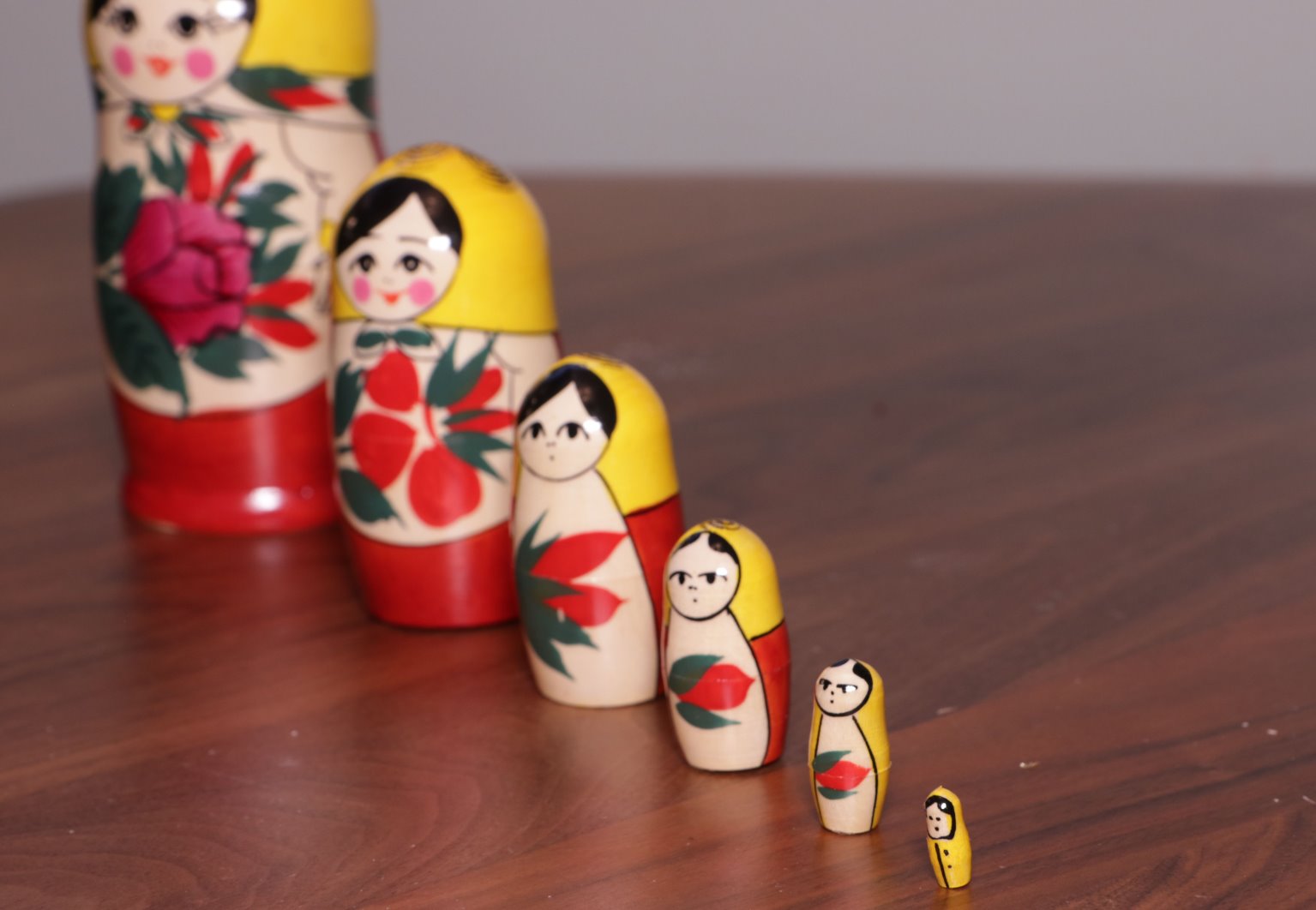Not considering your parts may be restricting your progress
After nearly forty years working in the field, I am in no doubt about the biggest difficulties you face when trying to make positive lifestyle changes in your life. It is not considering the complex nature of the human condition. You are complex, and you need to take this into account! Learning to understand this complexityand work with what we call your ‘parts’ will offer you the best opportunity for the growth and progress you have been seeking.
There are several reasons why you may have not considered your ‘parts’ when attempting to recover from addiction, dependence, or make spiritual, financial or relational progress in your life. Here are two of the most important.
You may not have heard of the idea
It’s not that long ago that Richard Schwartz developed the idea of taking what we knew about families like the dynamics, relationships, and struggles. And applying these ideas internally. The idea of Internal Family Systems was born when he discovered that these same principles relationships and pressures were also present internally, within each person. It worked! As people developed better relationships with themselves they managed their ‘parts’ better and created more harmony and less internal conflict, just like we had been doing with families!
You may have thought you were ill or mentally strange
Because the medical model has had us thinking about ourselves as unified or ‘just one thing’, you may have been embarassed or ashamed about your inner ‘thought’ life. How you sometimes think, what you seem to believe. Especially when it comes to your behaviour and how it stacks up with what you see others doing. They may have seemed much better than you in the way they appear or behave. You may have proceeded on the asumption that there was something wrong with you and that you just had to put up with it, or, worse still, that you had to fight it. It is this failure to ‘beat’ this part of you that frustrates people the most. I want you to know you have been on the wrong track!
Your parts are a healthy and normal human component

The storing of traumatic and problematic experience in your brain is what we are calling your ‘parts’. It is your brains reactions to perceived threats and its way of protecting you. So there are essentially two hurdles to get over before this understanding can be useful.
Number One – This is normal and healthy!
The activity in your brain that watches out for you and acts to protect you is not happening because you are broken or malfunctioning. It is hapenning because you are functioning well. You are not suffering from multiple personality disorder or have evil spirits living in you.
Number Two – This is useful and necessary!
Imagine being in a dangerous situation without your brain acting to protect you! No fight or flight reactions! You would be very vulnerable to almost any danger. Your brain will always get you out of danger better than your mind will. For brain think reaction, for mind think response.
Your parts are constructed through your experience
So the problem is not that we have parts, that’s normal and useful. The problem arises when your lived experience trains your brain that certain things are a threat to you when they weren’t, or are no longer threatening. There are lots of things that feel threatening to a baby, a toddler or a young child, that would not be threatening to an adult. Let me give you an example. When I was about five or six, I remember standing on my Grandmas back step. She was washing clothes in the kitchen and getting on with her day. She didn’t seem to sense the danger! You see it was raining, hard! The rain was bouncing off the garden path and the puddles were growing visibly. I could see the rain across the feilds, for miles, and I was scared!
So what was the problem? At my age I did not have the experience to know that the rain was not a danger to us. I did not understand that it would stop soon and the water would drain away. In my childs imagination I saw the rain never stopping and everyone drowning. This type of thing is typical of childrens experience as they do not know the limits of the natural world.
Your parts are in sequence
As you develop your understanding of those parts of you that you have recognised, the next step is develop your understanding of the way your parts are sequential. Just like the Russian dolls in the photos, each of the parts that are constructed through trauma are ‘covering’ the previous part. This is one of the best ways to understand and make sense of the parts and is the equivalent of ‘exiling‘ in IFS theory.
This will take some getting used to as it turns more traditional approaches on their head. Instead of starting with the most visible of your problems, we start with the most hidden. Since all parts are protecting the one below we want to know more about the sequence and the stories that caused these protections. This is the work of recovery and we should not rush it.

As you develop your understanding of those parts of you that you have recognised, the next step is develop your understanding of the way your parts are sequential. Just like the Russian dolls in the photos, each of the parts that are constructed through trauma are covering the previous part. This is one of the best ways to understand and make sense of the parts and is the equivalent of ‘exiling‘ in IFS theory. Once you identify a part, ask yourself this question. “If this part didn’t turn up, what would happen”? Let me offer you a typical hierarchy of parts I often see. If the client has entered treatment as an addict, they will often start their therapy sessions with a strong sense of that ‘drug taking’ part. When we explore what would happen if the drug taking part did not show up, we often discover an agitated or angry part. And when we ask about what would happen if that part did not appear, we often encounter a sad or ignored young part. Imagine these arts as Russian dolls actually covering each other with their appearance and you start to get the picture of how these things work. So why do they do this? Always and only for one reason, to protect you!

Your parts are protecting you
Because the initial reason for entering treatment is that you are acting out addictively and that this is causing huge problems in your life, it makes sense that you see these parts as your enemy. The main one, which is the addictive one, is making you do thigs that you do ot want to do! These behaviours are getting you into all sorts of trouble. Why wouldn’t you see them as the enemy?
If only you could get them to stop, or just go away. Years ago, working in treatment centres, we knew about the enemy withi alright, it was often called ‘my addict’, and seen as some sort of evil spirit. There was lots of ‘spiritual warfare’ along the lines of ‘which one gets fed the most’ etc.
But what if I told you that these parts of you are only trying to help you? Only trying to protect you? And that this is what they were designed to do! Once you get this idea you can begin the recovery journey of working with your brain instead of against it.
Imagine that you had been protecting someone for years or decades. Without stopping or taking a break. Constant vigilance and dedication to your task. Imagine you had do this without any thanks, and without any recognition! Now imagine that, after years of dedication, the one you had been protecting announced that you were the enemy! That you needed to be removed or exiled. How would you feel? If your dedication was as total as your brains is, you would continue to protect, no matter what opposition came your way. Like a Parent protecting their child there would be nothing anyone could say that would get them to stop.
It’s like this with your brain. It has been designed to protect you and trained (by your experience) to protect you in certain ways. Yes, you have trained it by your behaviour. Remember that your brain only knows things through your senses, thoughts and behaviour. It records your responses to situations and forms cliches of thought patterns based on this behaviour. These are called neural pathways and get stronger and more entrenched the more you repeat them. When you start to work with your brain instead of against it you appreciate, educate and negotiate your way to forming new neural pathways and develop a harmoised self instead of a conflicted self.
How does understanding help us to work with our parts?
The more you understand the heirarchical relationship of your parts, the more you see the way they cover each other, the better you will be able to sympathise and empathise with their behaviour. The first question is the most important one.
“How do I feel about this part”?
If you feel anything other than compassion, you have not achieved the observer position, which is vital in working effectively with these parts. If you feel angry or ashamed when you think about any part, then step back some more and observe the part that observes the first part! Continue to step back until you feel the compassion that your authentic self has for all your parts.

Once you feel comfortable that you are observing your parts with compassion and feel connected to them, the next three questions should be;
How old is this part?
What is this part certain of?
Wha does this part have me doing – thinking – feeling?
Always remember, you are an explorer, not a detective! This is not psychiatry or anyting medical. The main function of this exercise is to produce evidence (your brain only rewires itself based on evidence) that these things your brain is protecting you from are not dangerous, even if they were previously when you were much younger.

I hope this brief foray into the neuroscience of personal progress throuh the rewiring of your brain has given you some hope for the furure, or at least some things to think about.
It takes quite some time and effort to shift from a medical idea to a neurosciece based idea of the human condition, do not be discouraged if you find yourself snapping back to things like ‘self loathing’ or conflicted self.
If you want any further support, please consider emailing me.





0 Comments